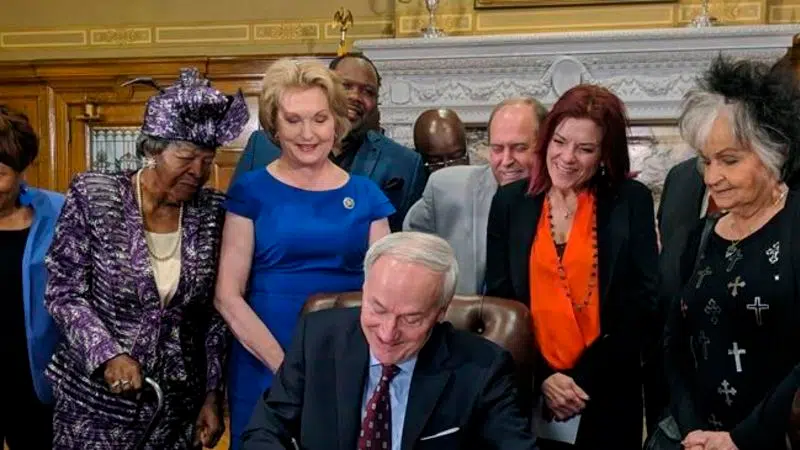
Daisy Bates, Johnny Cash statues headed to US Capitol
LITTLE ROCK, Ark. — Statues of civil rights leader Daisy Bates and country singer Johnny Cash — two of Arkansas’ most celebrated icons — are headed to Washington, D.C., to represent the state in a U.S. Capitol display.
Gov. Asa Hutchinson on Thursday signed into law a bill that will swap out the state’s current statues at the Capitol’s National Statuary Hall Collection, which are of 19th century attorney Uriah Rose and former Arkansas Gov. and Sen. James P. Clarke, with the statues of Bates and Cash.
“This is an extraordinary moment recognizing the contributions of two incredible Arkansans,” said Hutchinson, who was joined at the signing ceremony by friends and family of Bates and Cash. “We want our memories, through our statues, to tell the story of Arkansas. I believe our story is well represented by these two historic figures.”


